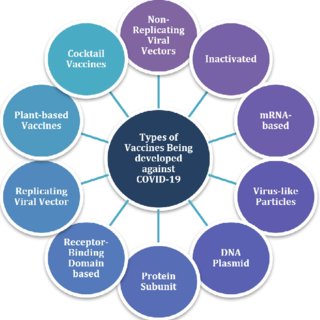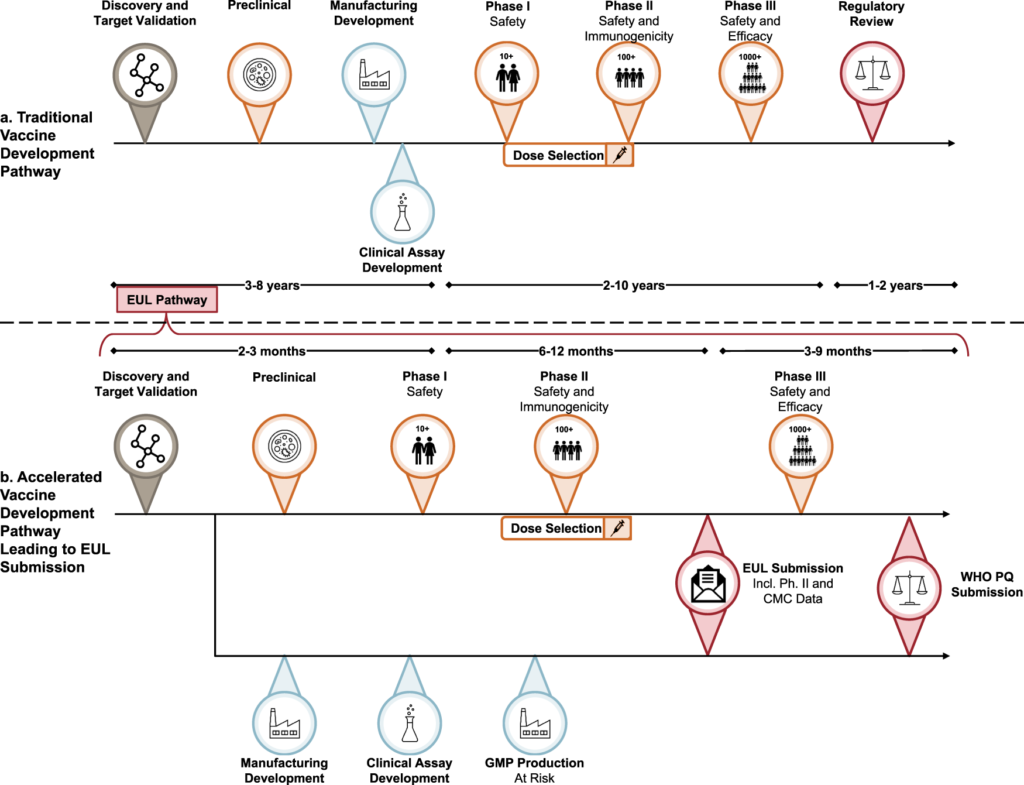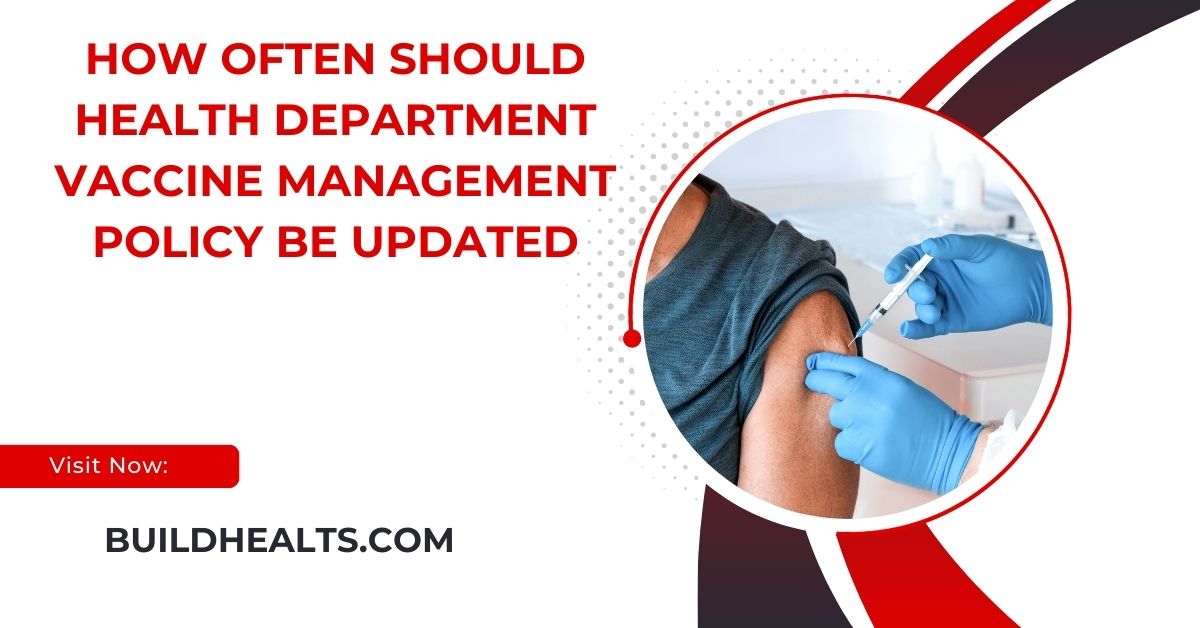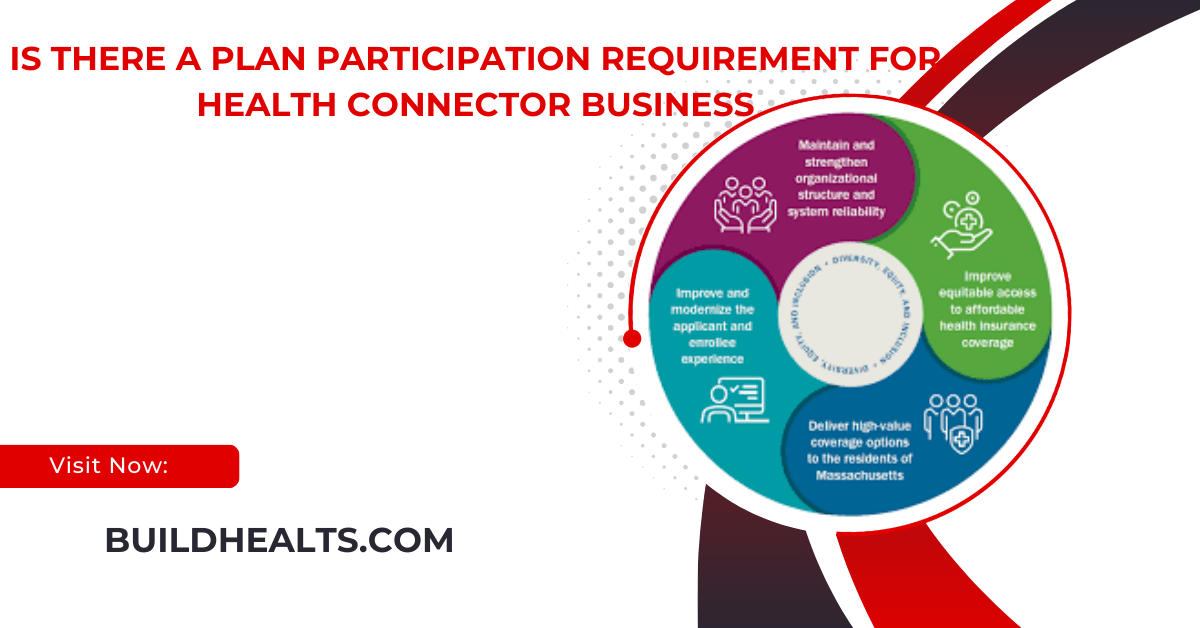Health department vaccine management policies should be updated yearly and whenever significant changes occur, influenced by health threats, research, regulations, and community needs.
This article will explore how often health department vaccine management policies should be updated, why regular updates are important, and what factors influence these updates.
Understanding Vaccine Management Policies
What Are Vaccine Management Policies?

Vaccine management policies are essential guidelines established by health departments and organizations to ensure the safe and effective handling of vaccines. These policies cover various aspects of vaccine management, including:
- Storage and Handling: Guidelines specify how vaccines should be stored and handled to maintain their effectiveness. This includes temperature requirements, storage conditions, and proper handling techniques.
- Inventory Management: Policies outline procedures for tracking vaccine inventory, managing stock levels, and monitoring expiration dates. This helps prevent wastage and ensures that vaccines are available when needed.
- Administration Protocols: These policies detail the steps for administering vaccines, including who can give them, dosage information, and necessary patient observation after vaccination.
- Reporting Requirements: Vaccine management policies establish guidelines for documenting vaccination data, such as patient records, vaccine lot numbers, and reporting to health authorities. This is crucial for monitoring vaccination rates and ensuring accountability.
Why Are They Important?
Vaccine management policies are important for several reasons:
- Safety: Proper handling of vaccines minimizes the risk of contamination, spoilage, or ineffective administration. For example, vaccines that are not stored at the correct temperature may lose potency, leading to ineffective immunization.
- Effectiveness: Vaccines must be stored at specific temperatures to remain effective. The cold chain, which includes refrigeration and transportation, is vital for maintaining the integrity of vaccines.
- Compliance: Health departments must adhere to regulations and standards set by authorities such as the Centers for Disease Control and Prevention (CDC) and the World Health Organization (WHO). Non-compliance can lead to penalties and diminished public trust.
- Public Health Outcomes: Effective vaccine management leads to higher vaccination rates, which are essential for herd immunity and the prevention of outbreaks.
Also read: Can I Cancel Pet Health Club – A Step-by-Step Guide!
How Often Should Vaccine Management Policies Be Updated?
Regular Updates Are Essential:
Health department vaccine management policies should be reviewed and updated regularly. The frequency of these updates can depend on various factors, including changes in:
- Guidelines and Recommendations: Health authorities frequently release new guidelines based on the latest research and emerging diseases. For example, during a pandemic, vaccine guidelines may change rapidly based on new information about vaccine efficacy and safety.
- Vaccine Formulations: New vaccines may be introduced, or existing vaccines may be modified. Updates to policies are necessary to incorporate these changes. For instance, the introduction of new vaccine formulations may require adjustments in storage protocols or administration techniques.
- Storage Technologies: Advances in vaccine storage technologies can improve the effectiveness and safety of vaccines. Policies should reflect the latest best practices, such as using temperature monitoring devices that alert staff if vaccines are outside their required temperature ranges.
- Legal and Regulatory Requirements: Changes in laws and regulations related to vaccine distribution and administration can necessitate policy updates. Being aware of changes in legislation is essential for meeting compliance requirements.
Suggested Update Frequency
While there is no one-size-fits-all answer, a good practice is to review vaccine management policies at least once a year. However, if any significant changes occur in the factors mentioned above, an update should be made immediately. For example:
- Annual Reviews: Health departments should schedule regular reviews of their policies once a year to ensure they remain current. This annual review should involve a comprehensive evaluation of all aspects of the vaccine management process.
- Ad Hoc Updates: When new vaccines are introduced, or significant changes in health guidelines occur, policies should be updated without delay. For instance, if a new vaccine is approved for emergency use, the policies governing its administration must be established quickly.
Factors Influencing Vaccine Management Policy Updates:

Emerging Health Threats:
New infectious diseases or outbreaks can lead to urgent updates in vaccination protocols. For instance, the rise of a novel virus may require the rapid development and distribution of vaccines to control its spread. Prompt policy adjustments are vital to respond effectively to these health challenges.
Scientific Research and Evidence:
Ongoing research provides essential insights into vaccine efficacy, safety, and best practices. Policies must be regularly updated to reflect the latest scientific findings, ensuring that immunization efforts are based on the most current evidence. This approach enhances the overall quality of care in vaccination programs.
Updates to Vaccine Recommendations:
National and international health organizations, such as the CDC and WHO, frequently revise vaccine recommendations. Local health departments need to align their policies with these updates to ensure compliance and effectiveness. Keeping up with these changes is crucial for maintaining public trust and vaccination coverage.
Regulatory Requirements:
Alterations in laws or regulations concerning vaccine storage, distribution, and administration can necessitate policy revisions. Compliance with these regulations is essential for the legal operation of vaccination programs. Adhering to updated regulations protects both providers and recipients.
Technological Advances:
Innovations in vaccine storage, handling, and tracking technologies can significantly enhance efficiency and safety. Policies should incorporate these advancements to improve vaccine management practices. Integrating new technologies helps streamline operations and ensures better patient outcomes.
Also read: How Much Health Does Chimaeron Have – A Comprehensive Guide!
Community Needs and Feedback:
Conducting community health assessments and gathering feedback from healthcare providers can identify gaps in vaccine access or administration. Policies should be revised based on these insights to address specific community needs. This approach fosters greater public engagement and increases vaccination rates.
Resource Availability:
The availability of funding, personnel, and equipment can significantly influence the frequency of policy updates. Limited resources may restrict the implementation of new practices, necessitating a reevaluation of current policies. Ensuring adequate resources is essential for the success of immunization programs.
The Process of Updating Vaccine Management Policies:

Updating vaccine management policies involves a systematic approach to ensure that immunization programs remain effective and aligned with current health needs. The process usually involves these steps:
Assessment of Current Policies:
The first step is to review existing vaccine management policies to identify areas that may require updates. This involves evaluating their effectiveness, compliance with current regulations, and alignment with best practices in immunization.
Gathering Data and Evidence:
Collecting relevant data and scientific evidence is crucial for informing policy updates. This includes analyzing epidemiological data, vaccine efficacy studies, and feedback from healthcare providers and the community. Engaging with stakeholders can also provide valuable insights.
Consultation with Experts:
Involving public health experts, immunization specialists, and legal advisors in the policy revision process ensures that updates are based on sound scientific knowledge and legal requirements. Their expertise helps in addressing complex issues and anticipating potential challenges.
Drafting Revised Policies:
Once the necessary information is gathered, a draft of the updated policy is created. This draft should clearly outline new protocols, guidelines, and any changes made based on the assessment and evidence gathered. It should also be tailored to the specific needs of the community it serves.
Also read: Magnesium Rods Health Hazards List – What You Need to Know!
Review and Feedback:
The draft policy is then circulated among stakeholders for review and feedback. This can include healthcare providers, community organizations, and regulatory bodies. Incorporating their input helps ensure that the policy is practical and addresses community concerns.
Final Approval and Execution:
After incorporating feedback, the revised policy is submitted for final approval from relevant authorities or governing bodies. Once approved, it is essential to communicate the changes effectively to all stakeholders and provide training if necessary to ensure proper implementation.
Monitoring and Evaluation:
Following implementation, continuous monitoring of the policy’s effectiveness is essential. This includes tracking vaccination rates, evaluating outcomes, and making adjustments as needed based on ongoing data and feedback. Regular evaluations help maintain the relevance and effectiveness of the vaccine management policies.
FAQ’s
1. Why are vaccine management policies important?
Vaccine management policies ensure the safe handling, storage, and administration of vaccines, thereby protecting public health and enhancing community trust in vaccination programs.
2. How often should these policies be updated?
Policies should be reviewed at least annually, with immediate updates for significant changes such as new vaccine formulations or emerging health threats.
3. What factors influence policy updates?
Factors include emerging health threats, scientific research, changes in vaccine recommendations, regulatory requirements, technological advancements, community needs, and resource availability.
4. What is the process for updating vaccine management policies?
The process involves assessing current policies, gathering data, consulting experts, drafting revisions, soliciting feedback, obtaining final approval, and monitoring effectiveness post-implementation.
5. What happens if vaccine management policies are not updated?
Failing to update policies can lead to ineffective immunization practices, decreased public trust, potential health risks from mismanaged vaccines, and non-compliance with regulations.
Conclusion
Health department vaccine management policies should be updated at least once a year and immediately when significant changes arise. Updates are influenced by emerging health threats, scientific research, regulatory changes, and community feedback. Regular revisions ensure effective immunization programs and public trust.




